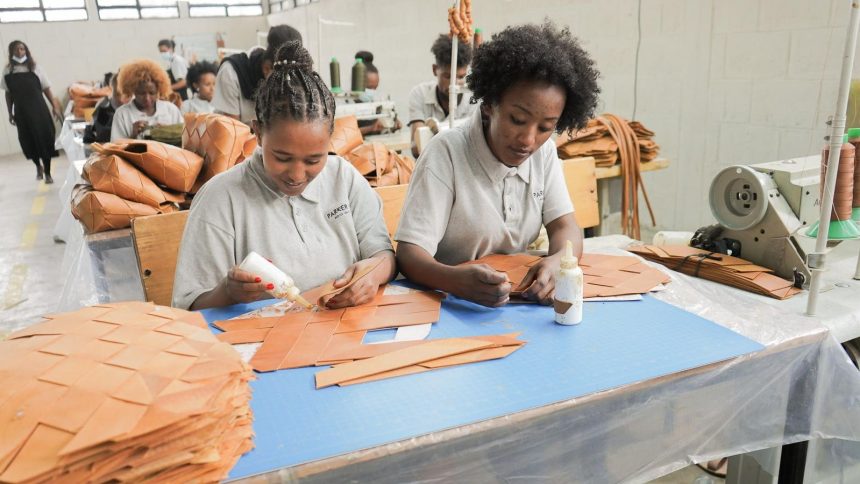The global leather goods industry, a market valued at $242.85 billion in 2022 and projected to grow significantly by 2030, faces a critical crossroads. Traditional leather production, dominated by chrome tanning, carries a heavy environmental and social cost. The discharge of chromium-laden waste poses health risks to both animals and humans, while child labor and exploitative working conditions remain prevalent within tanneries. Workers often suffer from health issues including diarrhea, blood pressure fluctuations, asthma, and various skin diseases, highlighting the urgent need for more sustainable and ethical practices within the industry. Parker Clay, Ethiopia’s largest leather goods exporter, stands as a compelling counter-example, demonstrating the viability of a business model grounded in ethical production and community engagement. Their recent recognition with the U.S. State Department’s Award for Corporate Excellence underscores their commitment to responsible practices.
Parker Clay’s success stems from a vertically integrated business model, owning and operating its factory in Ethiopia. This direct control over the production process enables the company, led by co-founders Brittany and Ian Bentley, to ensure both environmental responsibility and fair labor practices throughout their supply chain. As a certified B Corp, Parker Clay prioritizes social and environmental performance alongside financial success. In Ethiopia, where the gender pay gap remains significant, the company focuses on women’s empowerment through partnerships with local organizations like Ellilta Women at Risk (EWAR). These collaborations provide job training, financial literacy programs, and career advancement opportunities for marginalized women, fostering economic independence and social mobility. Parker Clay’s further collaboration with women-led banks like Enat Bank expands financial inclusion for its workers.
An interview with Brittany Bentley reveals Parker Clay’s holistic approach to sustainable fashion. Their decision to own their factory is central to maintaining ethical oversight, ensuring fair wages, benefits, and safe working conditions. The company’s focus on women’s empowerment translates into tangible programs that equip women with valuable skills and financial knowledge, ultimately contributing to their long-term economic stability. The success of these initiatives is evident in the high percentage of program graduates who maintain economic independence. Bentley highlights the cyclical nature of empowerment, where financially stable women invest back into their families and communities, creating a ripple effect of positive change.
Parker Clay’s journey has not been without its challenges. The COVID-19 pandemic presented a significant hurdle, disrupting global supply chains and creating economic uncertainty. However, the company leveraged its strong community ties, launching the “Better Together” campaign. This initiative allowed customers to invest in Parker Clay’s future by purchasing long-term gift cards, providing much-needed capital during a critical period. The success of this campaign demonstrated the power of community support and customer loyalty, solidifying Parker Clay’s resilience and adaptability.
The company’s B Corp certification further underscores its commitment to transparency and accountability. The rigorous certification process, which evaluates all aspects of a company’s operations, reinforces Parker Clay’s dedication to meeting the highest standards of social and environmental performance. Bentley emphasizes the ongoing nature of this commitment, highlighting Parker Clay’s continuous efforts to improve its practices and minimize its environmental impact. This commitment extends beyond the final product to encompass the entire production process, ensuring that ethical considerations are paramount at every stage.
Parker Clay’s story provides a compelling model for the future of the fashion industry. By prioritizing ethical manufacturing, empowering workers, and maintaining a transparent supply chain, the company demonstrates that profitability and social responsibility are not mutually exclusive. Their innovative approach to private label manufacturing positions them to influence ethical practices across the broader industry, pushing other brands to adopt more sustainable and equitable models. Parker Clay’s journey from a mission-driven startup to Ethiopia’s largest leather goods exporter offers valuable lessons for how the fashion industry can rethink its practices, moving away from exploitative models towards a more equitable and sustainable future. Through its unwavering commitment to “a better bag for a better world,” Parker Clay is not just producing high-quality leather goods; it is crafting a more hopeful future for the workers, communities, and environment connected to the fashion industry.



